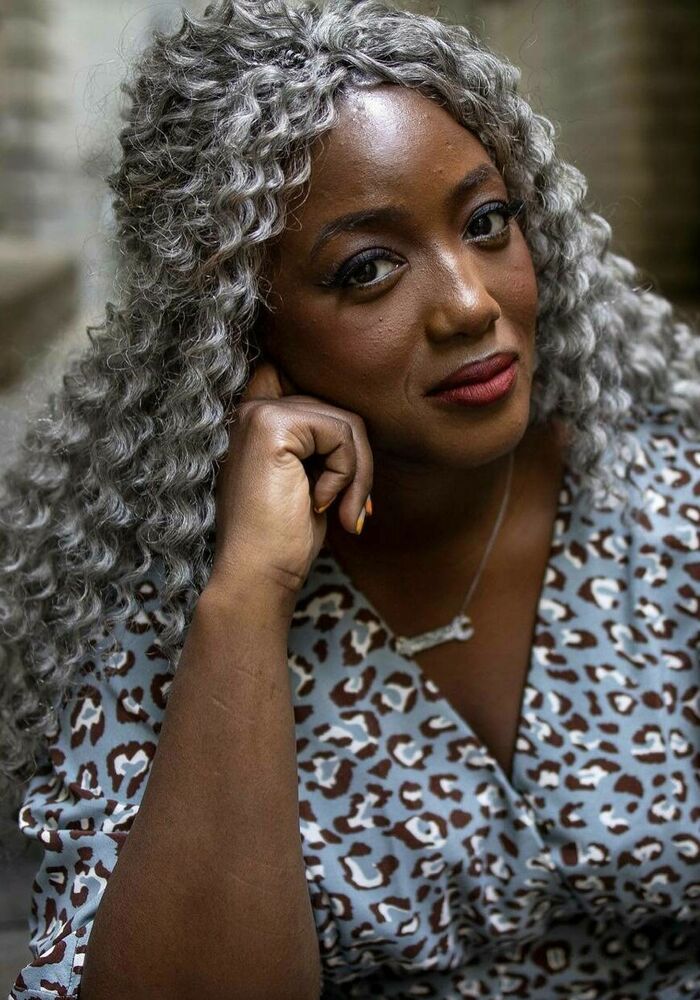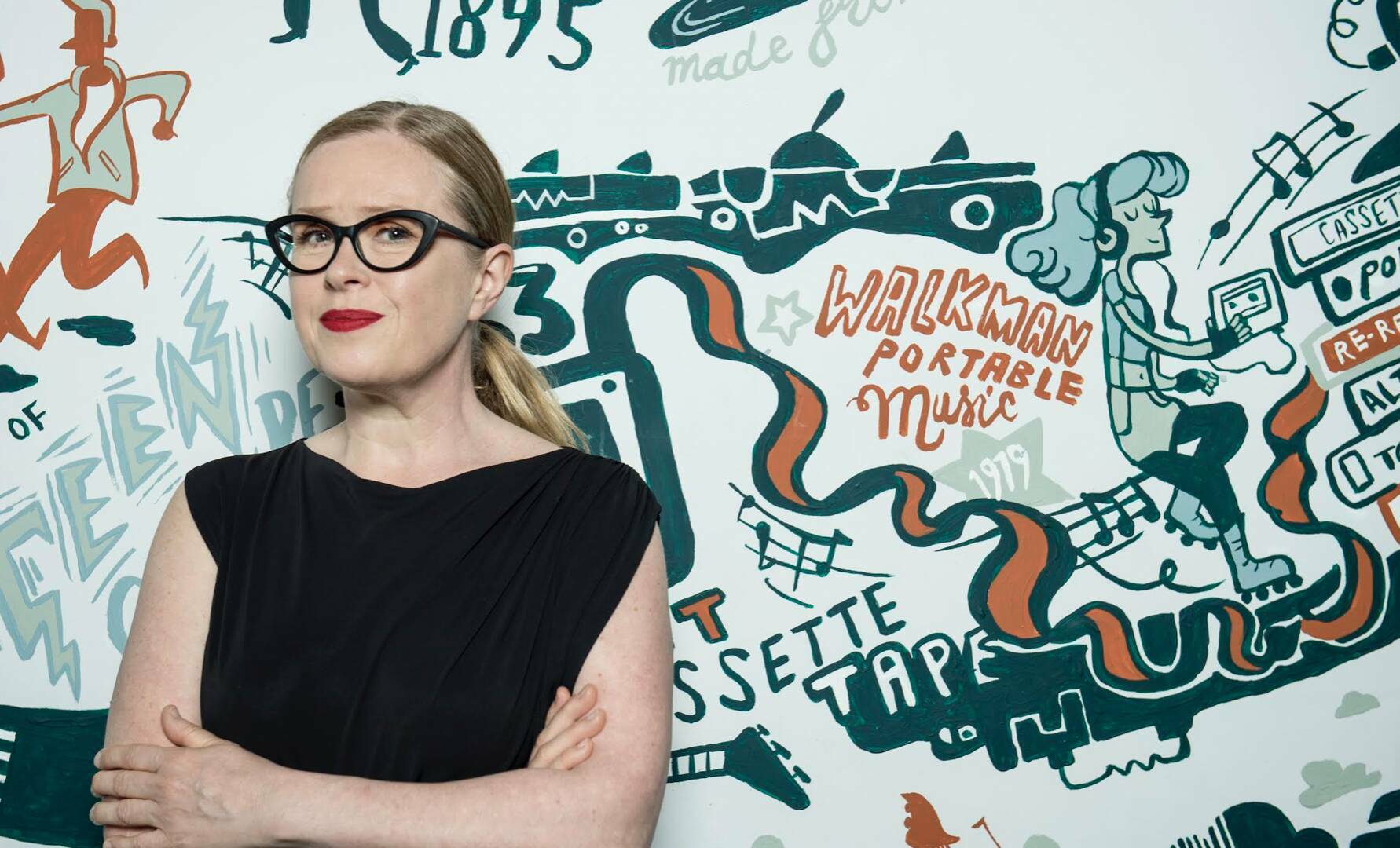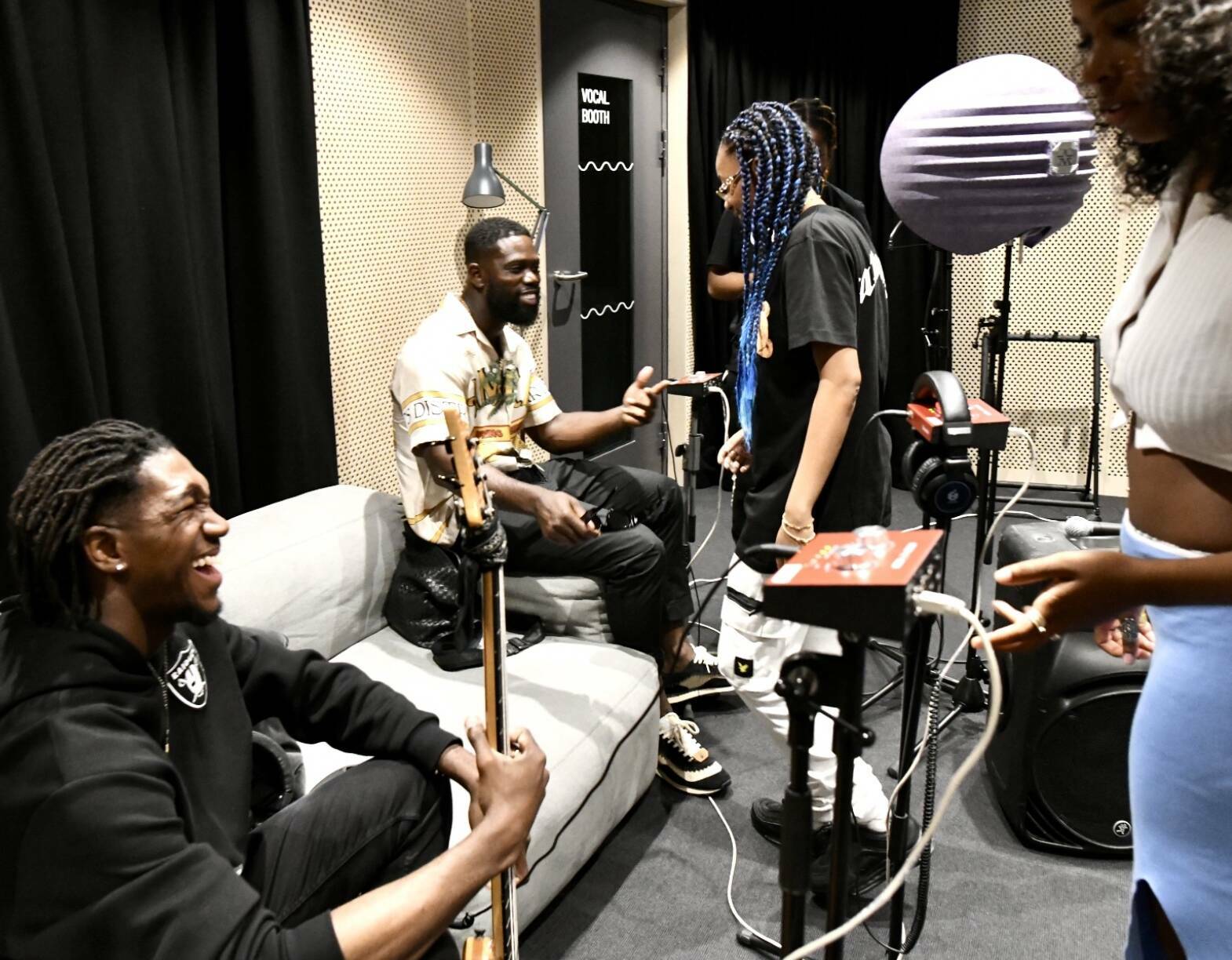Headliner has spoken to UD founder and CEO Pamela McCormick and newly appointed chair Dr Anne-Marie Imafidon MBE about the youth music organisation’s continued efforts to support young people from black and underrepresented groups in their pursuit of a career in music, as well as its upcoming Industry Takeover festival.
Being held for the first time in UD’s new state-of-the-art east London HQ, the Talent House, March 27-April 2, the Industry Takeover is co-curated by UD’s community of aspiring artists and creatives. This year’s edition sees the expansion of the event from a one-day seminar to a week-long festival, featuring workshops, conversations, and performance opportunities, all aimed at ‘equipping the next generation of music and professional talent with the tools they need to navigate and build alliances within the music business’. Tickets for all events are free.
With over 20 events planned, the week starts with an In Conversation with 0207 Def Jam founders, the twins Alex and Alec Boateng, chaired by BBC Correspondent, Chi Chi Izundu, whilst Jacqueline Springer, Curator Africa & Diaspora: Performance at the Victoria & Albert Museum, will interview Ray BLK, UD’s first ambassador. Completing the trio of ‘In Conversations’ is the UK’s first dedicated race correspondent, Nadine White from The Independent, and Athian Akec, member of the UK Youth Parliament and an active campaigner on knife crime, Brexit and climate change.
The focus on community development and Black music culture continues with Music Against Racism, who will stage their own takeover of the festival on March 31, collaborating with the Rio Ferdinand Foundation, UD and Warner Music UK in a series of workshops and discussions. There will be a panel with top A&R executives looking at how different generations of emerging and established artists can work together to create a more empowered landscape and stay relevant to enjoy sustainable careers in music.
Multi-platinum producer TSB (J Hus, Dave, Headie One) will deliver a Production Masterclass powered by The Flight Club; Music Entrepreneur of the Year at the Young Music Boss Awards, Finesse Foreva, will take part in a Q&A hosted by the MMF; and a series of interactive workshops will be provided by experts from PPL and PRS for Music as well as grime artist and founder of influential label Butterz, Elijah, and TikTok.
We sat down with McCormick and Imafidon to find out more about UD’s plans for the year ahead and the biggest challenges facing the grassroots sector today…





